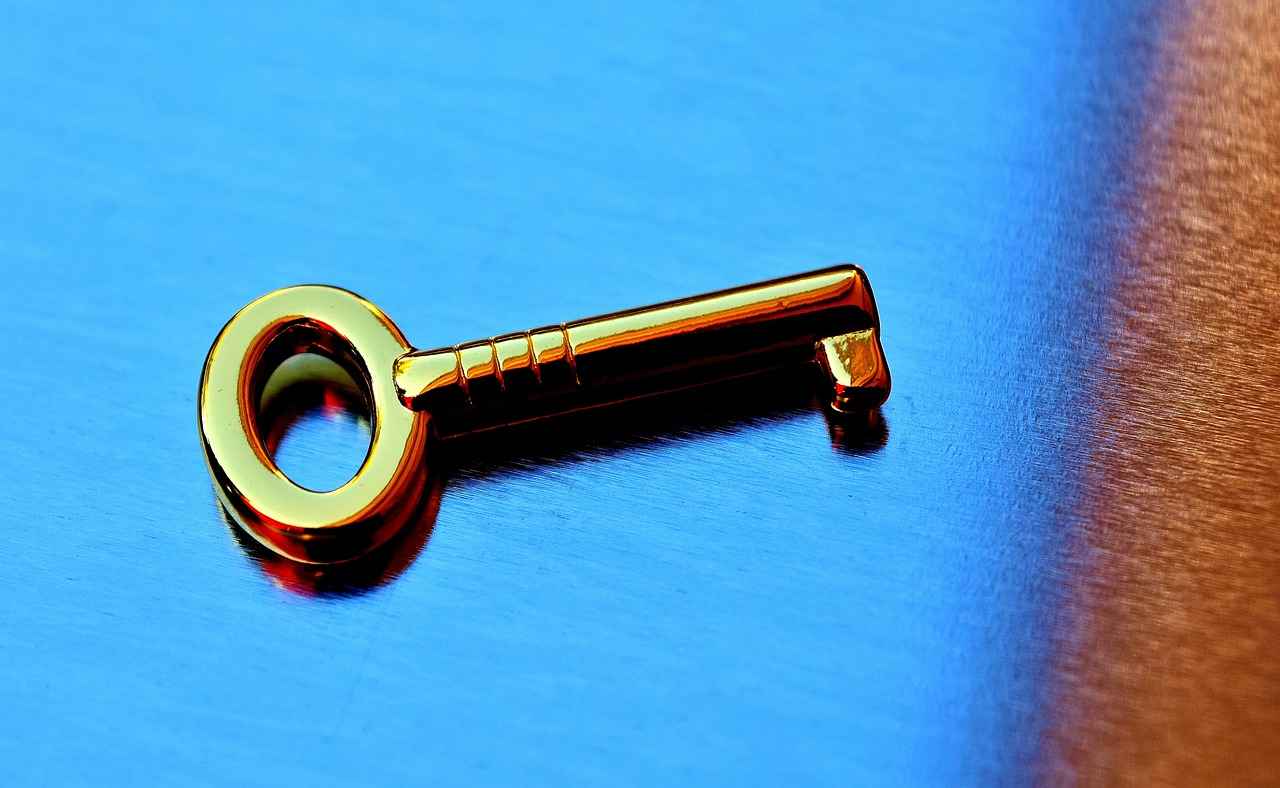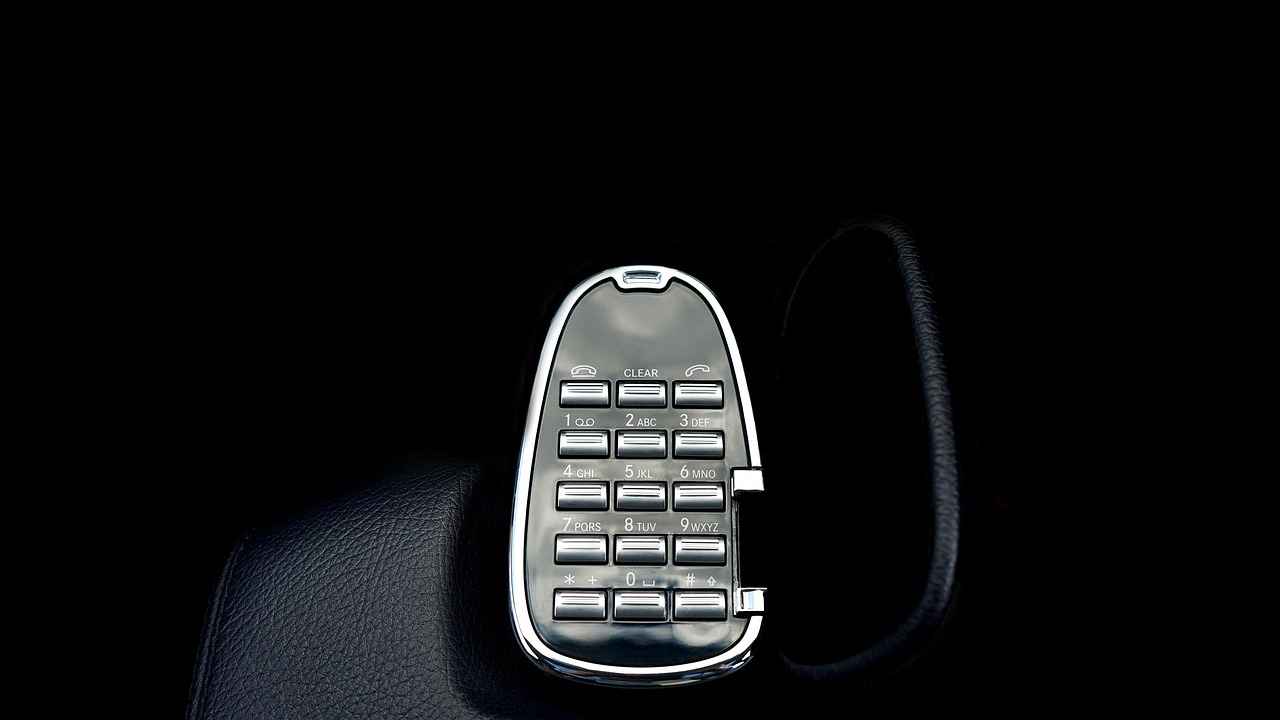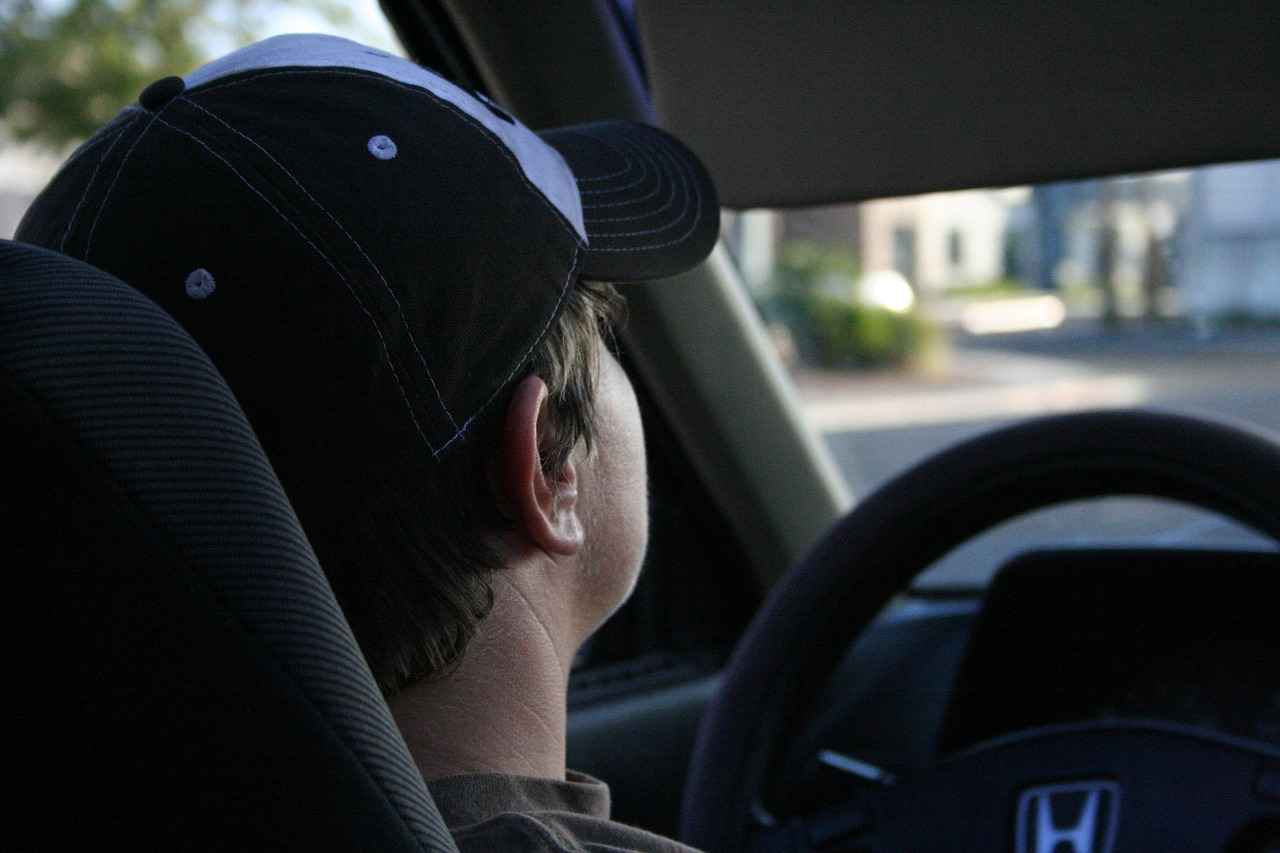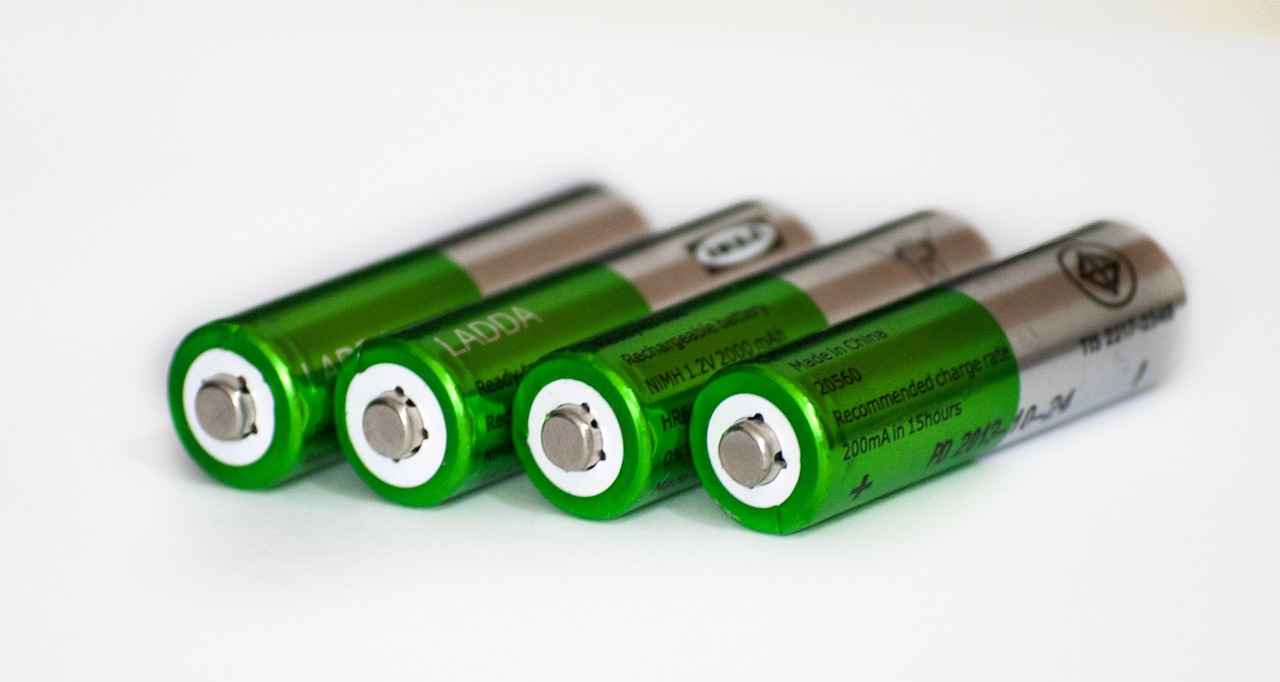This article provides a comprehensive guide on changing the battery in your Honda Accord key, ensuring you can easily access your vehicle without hassle. Understanding the process is crucial for maintaining your key fob’s functionality, as a weak battery can lead to inconvenience and frustration.
Recognizing the importance of your key battery is essential. Over time, batteries lose their charge, which can result in intermittent issues with unlocking your car. Signs such as a weak signal or a delayed response are indicators that it’s time for a replacement.
Your Honda Accord key typically requires a CR2032 battery. This lithium coin cell battery is widely available and known for its reliability. Always check your owner’s manual for specific details regarding your model.
Some common symptoms of a weak battery include:
- Reduced range: You may need to be closer to your vehicle for the key to work.
- Intermittent unlocking: The key fob may not respond consistently.
- Warning lights: Some models display a warning on the dashboard.
Replacing the battery in your Honda Accord key is a straightforward process. Follow these steps:
- Gather Necessary Tools: You will need a small flathead screwdriver and a replacement battery.
- Open the Key Fob Properly: Locate the seam of the key fob and gently insert the screwdriver to pry it open.
- Remove the Old Battery: Carefully take out the old battery, noting its orientation.
- Insert the New Battery Correctly: Place the new battery in the same orientation as the old one, ensuring a snug fit.
While replacing the battery, be mindful of these common pitfalls:
- Forcing the key fob open: This can damage the casing.
- Incorrect battery orientation: This can prevent the key from functioning.
- Using the wrong battery type: Always verify the battery specifications.
Once the new battery is installed, test your key fob by:
- Pressing the lock and unlock buttons from a distance.
- Checking if the panic button activates the alarm.
If you encounter persistent issues after replacing the battery, it may indicate a problem with the key fob itself. In such cases, consulting a professional locksmith or dealership can provide solutions.
To ensure your key fob lasts as long as possible, consider the following maintenance tips:
- Keep the key fob clean and free from moisture.
- Avoid dropping or exposing the fob to extreme temperatures.
- Regularly check the battery and replace it as needed.
By following these guidelines, you can ensure that your Honda Accord key remains functional, allowing for easy and hassle-free access to your vehicle.

Why Do You Need to Change Your Honda Accord Key Battery?
When it comes to your Honda Accord, having a fully functional key fob is essential for convenient access to your vehicle. Understanding why you need to change your Honda Accord key battery can help you avoid unexpected situations and ensure that your vehicle remains accessible at all times. In this section, we will explore the reasons behind changing your key battery, the signs of a dying battery, and the importance of timely replacement.
Recognizing the importance of your key fob battery is vital for maintaining seamless access to your Honda Accord. The battery in your key fob powers the remote functions, including locking and unlocking your doors, starting the engine, and activating the panic alarm. As with any battery-operated device, the key fob battery will eventually lose its charge. Here are some key reasons to stay vigilant:
- Prevent Unexpected Lockouts: A dying battery can lead to unexpected lockouts, leaving you stranded outside your vehicle. Regularly changing your key battery can prevent this inconvenience.
- Ensure Smooth Operation: A fresh battery ensures that all functions of the key fob operate smoothly, allowing you to access your vehicle without any delays or malfunctions.
- Recognize Warning Signs: Understanding the signs of a weak battery, such as diminished range or intermittent functionality, can prompt you to replace the battery before it fails completely.
- Maintain Key Fob Longevity: Regular battery changes can help extend the life of your key fob, reducing the need for costly replacements.
Being aware of these reasons not only enhances your experience with your Honda Accord but also saves you from potential hassles. A key fob that operates reliably is essential for your daily routine, making it crucial to monitor its performance and battery life.
To ensure that you can quickly identify when your key fob battery needs changing, it’s important to recognize the symptoms of a weak battery:
- Reduced Range: If you find yourself having to stand closer to your vehicle for the key fob to work, it may be time to replace the battery.
- Intermittent Functionality: If the key fob works sporadically, this can indicate a weak battery.
- Delayed Response: A noticeable delay in the key fob responding to button presses is another sign that the battery is nearing the end of its life.
By being proactive and monitoring these signs, you can ensure that your Honda Accord key fob remains functional. This not only enhances your experience but also prevents any unwanted surprises when you need to access your vehicle quickly.
In summary, understanding the necessity of changing your Honda Accord key battery is vital for maintaining convenience and ensuring that you are never left stranded. Regular checks and timely replacements can significantly enhance your vehicle access experience.

What Type of Battery Does a Honda Accord Key Use?
When it comes to maintaining the functionality of your Honda Accord key, understanding the specific battery type required is of utmost importance. A key fob is not just a tool for accessing your vehicle; it plays a crucial role in ensuring the security and convenience of your driving experience. Replacing the battery with the correct type will not only enhance the performance of your key fob but also prevent potential issues down the line.
The type of battery that your Honda Accord key requires can vary depending on the model year and the specific key fob design. Typically, most Honda Accord keys utilize a CR2032 lithium coin battery. This type of battery is widely available and known for its reliability and long shelf life. However, it’s crucial to check your vehicle’s owner manual or consult with a dealer to confirm the exact battery type for your specific key fob model.
Using the correct battery type is essential for several reasons:
- Optimal Performance: A compatible battery ensures that your key fob operates smoothly, allowing you to unlock and start your vehicle without any issues.
- Longevity: Using the right battery can prolong the lifespan of your key fob, reducing the frequency of replacements.
- Avoiding Damage: Incorrect battery types can lead to potential damage to the key fob’s internal circuitry.
When replacing the battery, it’s also important to handle the key fob with care. Follow the proper steps to open the fob and replace the battery without causing any harm. Here’s a quick overview of the process:
1. Gather necessary tools: a small screwdriver and a new battery.2. Open the key fob carefully to avoid breaking any clips.3. Remove the old battery gently.4. Insert the new battery, ensuring the correct polarity.5. Close the key fob securely.
After replacing the battery, it’s advisable to test the key fob to confirm that it functions correctly. If you notice any issues, double-check that the battery is installed properly and that it is indeed the correct type.
In conclusion, knowing the specific battery type required for your Honda Accord key is essential for a successful replacement and maintaining optimal performance. Taking the time to ensure that you have the right battery can save you from unexpected inconveniences and keep your vehicle access seamless.

How to Identify Signs of a Weak Key Battery?
Understanding the importance of your Honda Accord key battery is crucial for maintaining seamless access to your vehicle. A weak key battery can lead to unexpected lockouts and inconvenience, making it essential to recognize the signs that indicate a battery replacement is necessary. This guide will help you identify these signs effectively.
Being aware of the symptoms of a weak key battery can save you from frustrating situations. Here are some common indicators:
- Reduced Range: If you find that you need to be closer to your vehicle for the key fob to work, it may be a sign that the battery is losing power.
- Intermittent Functionality: If your key fob works sporadically or requires multiple attempts to unlock the doors, it’s a clear indication that the battery is weak.
- Warning Light on Dashboard: Some Honda Accord models display a warning light when the key battery is low. If you see this light, it’s time to replace the battery.
- Delayed Response: A sluggish reaction when pressing the buttons on your key fob can suggest that the battery is nearing the end of its life.
- Physical Signs: If you notice any corrosion or leakage around the battery compartment, it’s crucial to replace the battery immediately to avoid further damage to the key fob.
Recognizing these symptoms early can help you avoid being locked out of your vehicle. If you experience any of these signs, it is advisable to replace the battery promptly. Not only does this ensure that your key fob functions properly, but it also prevents potential issues that could arise from a completely dead battery.
When you notice any of the above signs, consider the following steps:
- Check the battery type required for your key fob.
- Purchase a replacement battery from a reliable source.
- Follow the proper steps to change the battery, as outlined in the subsequent sections of this guide.
In addition to recognizing the signs of a weak battery, it’s essential to maintain your key fob regularly. Keeping it clean and storing it in a safe place can prolong its lifespan and reduce the frequency of battery replacements. Remember, a well-maintained key fob not only enhances your driving experience but also ensures that you can access your Honda Accord without any hassle.
By staying vigilant and recognizing the symptoms of a weak key battery, you can avoid unexpected lockouts and ensure that your Honda Accord key fob remains functional for years to come.

Step-by-Step Guide to Changing the Battery
Changing the battery in your Honda Accord key fob can seem daunting, but it doesn’t have to be. By following a clear, step-by-step guide, you can simplify the process and complete it as a DIY task. This guide will walk you through each stage, ensuring you have everything you need for a successful battery replacement.
- Gather Necessary Tools for the Replacement
Before you begin, it’s crucial to have the right tools on hand. You will need:
- A small flathead screwdriver
- A new battery (typically a CR2032 for most Honda Accord keys)
- A soft cloth to protect your key fob from scratches
- Open the Key Fob Properly
To access the battery compartment, you need to open the key fob carefully. Start by locating the seam on the side of the fob. Insert the flathead screwdriver gently into the seam and twist it slightly to create an opening. Be cautious not to apply too much force, as this could damage the fob.
- Remove the Old Battery
Once the fob is open, you will see the old battery. Take note of its orientation—how it is positioned within the compartment. Carefully remove the old battery using your fingers or the screwdriver, ensuring not to touch any internal components.
- Insert the New Battery Correctly
Now it’s time to place the new battery in the compartment. Ensure that you position it in the same orientation as the old one. The “+” side should be facing up, allowing for proper contact with the terminals. Press it down gently to secure it in place.
- Reassemble the Key Fob
After inserting the new battery, it’s time to close the fob. Align the two halves of the fob and press them together until you hear a click, indicating that it is securely closed. Make sure there are no gaps between the two halves to prevent moisture from entering.
- Test Your Key Fob
Finally, test the key fob to ensure that it is functioning correctly. Stand near your Honda Accord and press the lock and unlock buttons. If the car responds, congratulations! You have successfully changed the battery.
By following these steps, you can easily change the battery in your Honda Accord key fob, saving time and money. Regular maintenance of your key fob can enhance its longevity, ensuring reliable access to your vehicle whenever you need it.
Gather Necessary Tools for the Replacement
When it comes to changing the battery in your Honda Accord key, preparation is key. Gathering the necessary tools before you start the process is crucial to ensure that everything goes smoothly. Having the right tools at your disposal will not only save you time but also prevent any potential damage to your key fob.
Here’s a list of essential tools you will need for the battery replacement:
- Small Flathead Screwdriver: This tool is essential for prying open the key fob without causing damage to its casing.
- Replacement Battery: Make sure you have the correct battery type for your Honda Accord key. Typically, this will be a CR2032 or similar, but it’s always best to check your owner’s manual.
- Soft Cloth: A soft cloth will help protect the surface of your key fob while you work on it and can be used to clean any dust or debris from the battery compartment.
- Small Container: Use a small container to hold the screws and old battery, ensuring they don’t get lost during the process.
Before you begin, take a moment to double-check that you have everything you need. This will help you avoid interruptions during the battery replacement process. If you find yourself scrambling for tools mid-way through, it can lead to frustration and mistakes. Additionally, ensure you’re working in a well-lit area to see the small components clearly.
Once you have all your tools ready, you can proceed with confidence, knowing that you are fully prepared. This preparation will allow you to focus on the task at hand, ensuring a successful battery replacement without unnecessary delays.
Remember, taking the time to gather your tools beforehand is a small step that can lead to a much smoother experience. With everything in place, you can easily follow the subsequent steps to replace the battery in your Honda Accord key.
Open the Key Fob Properly
When it comes to maintaining your Honda Accord key fob, knowing how to open it properly is essential. This ensures that you can access the battery compartment without causing any damage. Many users may not realize that improper handling can lead to cracks or breakage, which can complicate future battery changes.
Opening your key fob with care is vital for several reasons:
- Prevent Damage: A gentle approach minimizes the risk of damaging the fob casing or internal components.
- Ensure Functionality: Proper opening allows you to replace the battery without affecting the overall functionality of the key fob.
- Cost-Effective: Avoiding damage means you won’t have to purchase a replacement key fob, saving you money.
Before you start, gather the following tools:
- A small flathead screwdriver or a plastic prying tool
- A soft cloth to protect the surface of the fob
Follow these steps to open your Honda Accord key fob safely:
1. **Find the Seam:** Locate the seam where the two halves of the fob meet. This is usually along the side.2. **Insert the Tool:** Gently insert the flathead screwdriver or plastic prying tool into the seam. 3. **Twist Slowly:** Carefully twist the tool to create a small gap. Avoid using excessive force.4. **Separate the Halves:** Once a gap is created, use your fingers to gently pull the two halves apart. 5. **Access the Battery Compartment:** You should now be able to see the battery compartment without damaging the fob.
To ensure a smooth process, be aware of these common mistakes:
- Using Excessive Force: Applying too much pressure can crack the casing.
- Ignoring the Seam: Opening from the wrong side can damage internal components.
- Rushing the Process: Take your time to avoid mistakes that could lead to damage.
If you feel resistance while trying to open the fob, stop and reassess. Forcing it open can lead to irreversible damage. Instead, check if you are at the correct seam and try again gently.
After successfully opening your key fob, keep these tips in mind:
- Regular Inspections: Periodically check your key fob for signs of wear and tear.
- Store Properly: Keep your key fob in a safe place to avoid accidental damage.
By understanding the correct method to open your key fob, you can ensure safe access to the battery compartment and prolong the life of your Honda Accord key. This knowledge not only saves you time but also prevents unnecessary expenses associated with damaged key fobs.
Remove the Old Battery
When it comes to changing the battery in your Honda Accord key, one of the most critical steps is removing the old battery. This process, while seemingly straightforward, requires careful attention to detail to ensure that the new battery is installed correctly and functions without any issues. Here’s a detailed guide on how to effectively remove the old battery from your key fob.
First, it’s important to ensure that you have a clean, well-lit workspace. This will help you avoid losing small components and make the process easier. Before you start, gather the necessary tools: a small screwdriver (typically a flathead or Phillips, depending on your key fob design) and a soft cloth to prevent scratching the surface of your key fob.
To begin the removal process, locate the seam where the two halves of the key fob meet. Carefully insert your screwdriver into this seam and gently pry the two halves apart. Take your time with this step; rushing can lead to damaging the casing or internal components. Once you have successfully opened the fob, you will see the battery compartment.
Now, carefully remove the old battery. Pay close attention to how the battery is positioned in the compartment. Most batteries have a positive (+) and negative (-) side, and it’s crucial to note this orientation for the installation of the new battery. Gently lift the battery out using your fingers or a pair of tweezers if it’s difficult to grasp. Avoid using excessive force, as this can damage the battery contacts or the circuit board inside the fob.
After removing the old battery, inspect the compartment for any debris or corrosion. If you notice any residue, clean it gently with a soft cloth. This step is vital because dirt or corrosion can interfere with the connection of the new battery, potentially leading to further issues down the line.
Once the old battery is removed and the compartment is clean, you are ready to insert the new battery. Remember to position it in the same orientation as the old one, aligning the positive and negative sides correctly. This attention to detail will ensure that your key fob operates efficiently once reassembled.
In summary, the process of removing the old battery from your Honda Accord key fob is a crucial step that should be approached with care and precision. By following these guidelines, you will set the stage for a successful battery replacement, ensuring that your key fob continues to function effectively.
Insert the New Battery Correctly
When it comes to changing the battery in your Honda Accord key fob, one of the most critical steps is to . This process is vital for ensuring that your key fob functions effectively and maintains a strong connection with your vehicle’s locking and unlocking systems. A misaligned or improperly positioned battery can lead to intermittent functionality or even complete failure of the key fob.
First and foremost, before you even begin to insert the new battery, it’s essential to identify the correct orientation. Most batteries have a positive (+) and negative (-) side, and placing the battery in the wrong direction can prevent your key fob from working altogether. Always refer to the battery compartment markings or consult your vehicle’s manual for guidance.
Here’s a step-by-step guide to ensure that you position the new battery correctly:
- Identify Battery Type: Make sure you have the right battery type for your Honda Accord key fob. The most common types include CR2032 or CR2025, but this can vary.
- Examine the Battery Compartment: Look closely at the battery compartment for any indicators or diagrams that show the correct orientation for the battery.
- Align the Battery: Carefully place the new battery into the compartment, ensuring that the positive side aligns with the positive terminal and the negative side aligns with the negative terminal.
- Press Down Gently: Once aligned, press down gently until the battery fits snugly in place. Avoid using excessive force, as this could damage the compartment or the battery itself.
- Close the Key Fob: After inserting the battery, securely close the key fob. Make sure there are no gaps, which could indicate that the battery is not seated properly.
After following these steps, it’s crucial to test your key fob. Stand near your Honda Accord and press the lock and unlock buttons to verify that the new battery is functioning correctly. If the key fob still does not work, double-check the battery orientation and ensure that the battery is fully seated in the compartment.
In addition to proper insertion, it’s also important to maintain your key fob for longevity. Keep it away from extreme temperatures and moisture, as these can affect battery performance. Regularly check the battery’s condition and replace it as needed to avoid unexpected lockouts.
By taking the time to insert the new battery correctly, you can ensure that your Honda Accord key fob operates smoothly, providing you with reliable access to your vehicle whenever you need it. Remember, a well-maintained key fob not only saves you time but also enhances your overall driving experience.

Common Mistakes to Avoid While Changing the Battery
Changing the battery in your Honda Accord key fob may seem like a straightforward task, but there are several common mistakes that many people make during the process. Being aware of these pitfalls can help you avoid complications that may arise from improper handling. Below, we outline the most frequent errors and provide tips on how to successfully navigate the battery replacement process.
- Not Using the Correct Battery Type: One of the most critical steps is ensuring you have the right battery model for your key fob. Refer to your owner’s manual or the specifications on the old battery to confirm compatibility.
- Forgetting to Gather Necessary Tools: Before starting the replacement, make sure you have all tools ready, such as a small screwdriver and a soft cloth. This preparation can help prevent interruptions and potential damage to the key fob.
- Improperly Opening the Key Fob: Many users rush to open their key fob without understanding how to do it correctly. This can lead to broken clips or damage to the casing. Always consult a guide specific to your model to learn the correct method.
- Neglecting to Observe Battery Orientation: When removing the old battery, take note of its orientation. Installing the new battery incorrectly can prevent the key fob from working. Always ensure that the positive (+) and negative (-) ends are aligned properly.
- Failing to Clean the Battery Compartment: Dust and debris can accumulate in the battery compartment over time. Before inserting a new battery, clean the area gently to ensure a good connection and optimal performance.
- Not Testing the Key Fob After Replacement: After changing the battery, it’s essential to test the key fob to ensure it functions correctly. Failing to do so can lead to surprises when you need to access your vehicle.
- Ignoring Manufacturer Instructions: Each key fob is unique, and following the manufacturer’s instructions is crucial. Skipping steps or misinterpreting the guidelines can lead to further complications.
By being mindful of these common mistakes, you can ensure a smooth battery replacement process for your Honda Accord key fob. Taking the time to prepare adequately and follow the correct procedures will save you from unnecessary frustration and potential damage.
In summary, changing your Honda Accord key battery doesn’t have to be a daunting task. With a little awareness and preparation, you can successfully complete the process and maintain reliable access to your vehicle.

How to Test Your Key Fob After Battery Replacement?
After replacing the battery in your Honda Accord key fob, it is crucial to test the key fob to ensure that the new battery is functioning correctly and that the key is operational. This process is simple yet essential, as it can help you avoid future inconveniences and potential lockouts.
Testing your key fob after a battery replacement is vital for several reasons:
- Functionality Check: Ensures that the new battery is installed correctly and is providing the necessary power.
- Prevention of Issues: Identifies any problems early, saving you from unexpected situations where your key fob might fail.
- Peace of Mind: Confirms that you can access your vehicle without any hassle, especially when you’re in a hurry.
To effectively test your key fob, follow these steps:
- Visual Inspection: Start by checking the exterior of the key fob for any signs of damage or wear.
- Button Functionality: Press each button on the key fob, including lock, unlock, and panic buttons, to see if they respond.
- Distance Test: Stand a few feet away from your vehicle and try to lock or unlock the doors. If the key fob works from a distance, it indicates a good battery.
- Check for LED Indicators: If your key fob has an LED light, observe whether it lights up when you press the buttons. A dim or non-functioning light may indicate a weak battery.
If you find that your key fob is not functioning properly after testing, consider the following:
- Recheck Battery Installation: Ensure that the new battery is installed correctly, with the positive and negative terminals aligned properly.
- Replace the Battery Again: If the battery was faulty, replacing it again with a new one may solve the issue.
- Consult the Manual: Refer to your vehicle’s manual for any specific troubleshooting steps related to your key fob.
- Seek Professional Help: If all else fails, it may be time to consult a professional locksmith or your dealership for assistance.
Testing your key fob after replacing the battery is an essential step in ensuring that your vehicle access remains seamless. By following the steps outlined above, you can confirm that your key fob is fully operational and ready to use whenever you need it.

When to Seek Professional Help?
When it comes to maintaining your Honda Accord key fob, understanding when to seek professional help is crucial. Ignoring minor issues can lead to larger problems, which may not only affect the functionality of your key fob but can also cause potential damage to your vehicle’s locking and starting systems. This section will explore the signs that indicate it’s time to consult a professional.
- Unresponsive Key Fob: If your key fob fails to respond even after replacing the battery, it may indicate a deeper issue that requires expert diagnosis.
- Physical Damage: Noticeable damage, such as cracks or broken components, can affect the internal circuitry. A professional can assess the extent of the damage and recommend repairs or replacements.
- Intermittent Functionality: If your key fob works sporadically, it might not just be a battery issue. Professionals can check for wiring problems or other malfunctions.
- Warning Lights: If your vehicle’s dashboard lights indicate a problem with the key fob or security system, it’s best to consult a professional to avoid potential security risks.
- Difficulty Programming: If you are unable to program a new key fob or remote, a professional can help ensure that it is properly synced with your vehicle.
While many car owners may feel confident attempting DIY repairs, there are significant risks involved. For instance, improper handling of the key fob can lead to:
- Damage to Internal Components: The delicate electronics inside a key fob can be easily damaged if not handled correctly.
- Incompatibility Issues: Installing the wrong battery or failing to program the fob correctly can lead to compatibility issues that may require professional intervention.
- Voiding Warranty: Attempting unauthorized repairs may void any existing warranties, leading to additional costs down the line.
Consulting a professional can offer numerous advantages:
- Expert Diagnosis: Professionals have the experience and tools to accurately diagnose issues that might not be apparent to the average car owner.
- Quality Repairs: With access to genuine parts and specialized tools, professionals can ensure that repairs are conducted to a high standard, enhancing the longevity of your key fob.
- Time Efficiency: Professionals can often resolve issues more quickly than a DIY approach, saving you time and hassle.
In summary, recognizing when to seek professional help is essential for maintaining the functionality of your Honda Accord key fob. By being aware of the signs of failure and understanding the risks associated with DIY repairs, you can make informed decisions that will save you time, money, and potential headaches in the future.

Maintaining Your Honda Accord Key for Longevity
Maintaining your Honda Accord key is not just about ensuring it works; it’s about prolonging its lifespan and minimizing the need for frequent battery replacements. A well-cared-for key fob can enhance your experience with your vehicle and ensure that you have reliable access whenever you need it. Here are some essential tips and insights on how to maintain your Honda Accord key effectively.
Proper maintenance of your key fob is crucial for several reasons:
- Extended Lifespan: Regularly caring for your key fob can significantly extend its lifespan. This means you won’t have to replace it as often, saving you both time and money.
- Reduced Battery Replacements: By taking care of your key fob, you can reduce the frequency of battery changes. A well-maintained key fob can last longer between battery replacements, ensuring that you can access your vehicle when needed.
- Reliable Access: A properly functioning key fob guarantees that you won’t face unexpected lockouts or access issues, providing peace of mind.
Here are some practical tips to help you maintain your Honda Accord key fob:
- Keep It Clean: Regularly clean your key fob using a soft, damp cloth. Avoid using harsh chemicals that might damage the surface or the internal components.
- Avoid Water Damage: Keep your key fob away from water and humidity. If it gets wet, dry it immediately to prevent internal damage.
- Store It Safely: When not in use, store your key fob in a safe place away from extreme temperatures. Avoid leaving it in direct sunlight or in a damp area.
- Check for Wear and Tear: Regularly inspect your key fob for any signs of wear and tear, such as cracks or loose buttons. Addressing these issues early can prevent further damage.
Understanding when to replace your key fob battery is essential for maintaining functionality:
- Weak Signal: If you notice that the range of your key fob has decreased, it may be time to replace the battery.
- Inconsistent Performance: If your key fob only works intermittently, this is often a sign of a dying battery.
- Warning Indicators: Some vehicles may display warning lights or messages indicating that the key fob battery is low.
Implementing best practices can help you get the most out of your Honda Accord key fob:
- Use a Keychain: Attaching your key fob to a keychain can help protect it from drops and impacts that could damage it.
- Avoid Overuse: Try not to press the buttons excessively, as this can wear down the internal mechanisms.
- Seek Professional Help: If you notice persistent issues with your key fob, consider consulting a professional to diagnose and fix any underlying problems.
By following these maintenance tips, you can ensure that your Honda Accord key fob remains in optimal condition, providing you with reliable access to your vehicle for years to come. Remember, a little care goes a long way in extending the life of your key fob.
Frequently Asked Questions
- How often should I change the battery in my Honda Accord key?
It’s generally recommended to change your key battery every 2-3 years, but keep an eye out for signs of a weak battery, like decreased range or unresponsive buttons.
- What type of battery does my Honda Accord key use?
Your Honda Accord key typically uses a CR2032 battery, but it’s always best to check your owner’s manual or the battery compartment for confirmation.
- Can I change the battery in my Honda Accord key myself?
Absolutely! Changing the battery is a simple DIY task that you can do at home with just a few basic tools. Just follow the step-by-step guide provided!
- What are the signs that my key fob battery is dying?
Common signs include a weak signal, needing to be closer to the car to unlock it, or having to press the buttons multiple times for them to work.
- What should I do if my key fob doesn’t work after changing the battery?
If your key fob isn’t working after replacing the battery, double-check that the new battery is installed correctly and that it’s the right type. If issues persist, consider seeking professional help.














